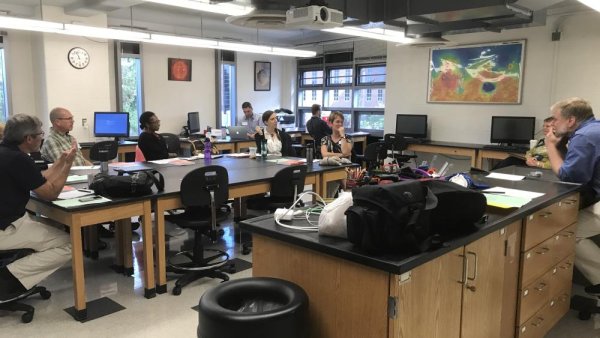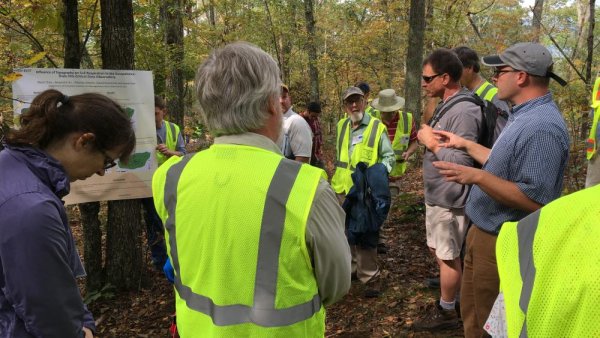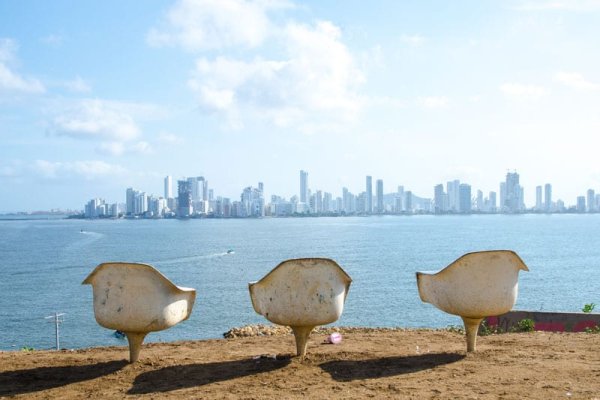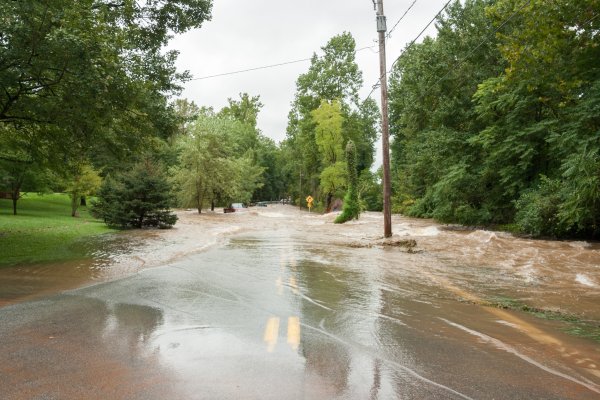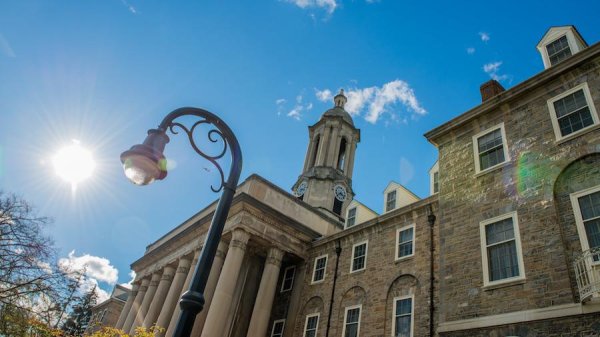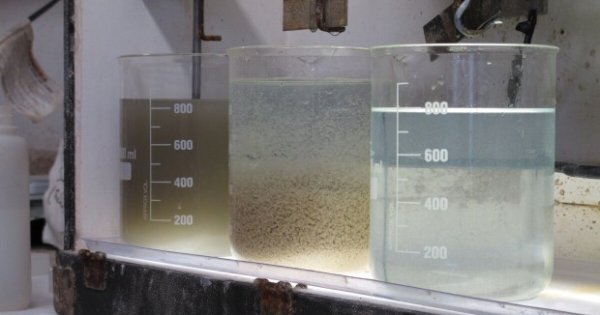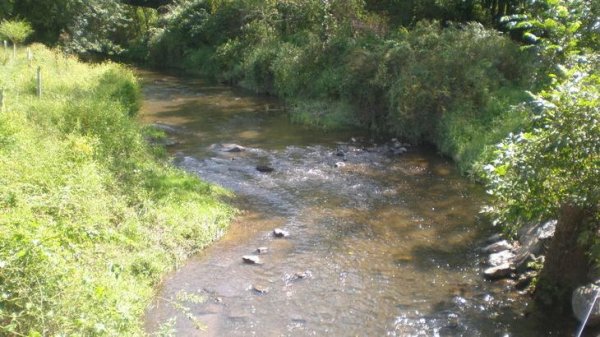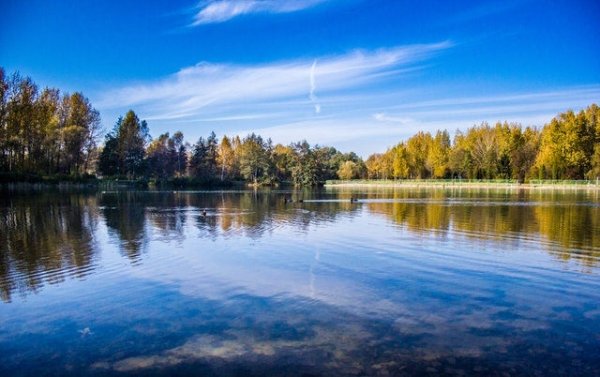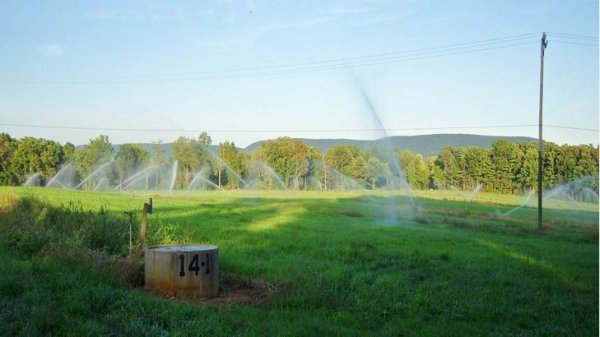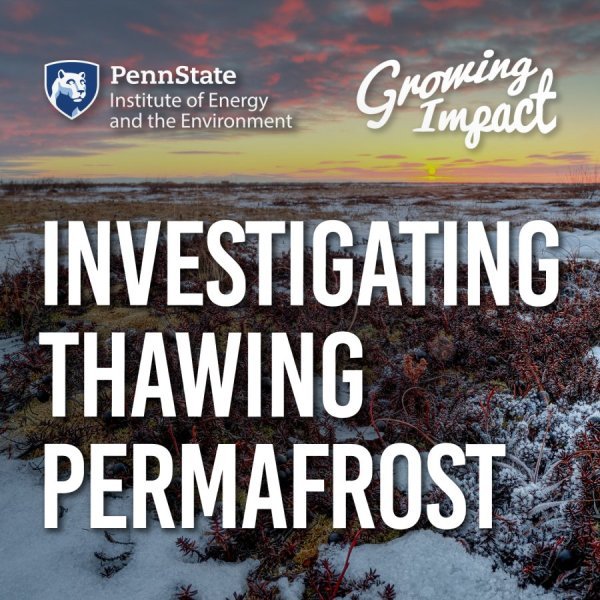Brandywine professor uses NSF grant to tell the stories behind earth science
| psu.edu
Laura Guertin, professor of earth science at Penn State Brandywine, is in the business of asking questions — and her most recent inquiry launched a new, creative project to help more people understand the natural world.
New desalination method offers low-energy alternative to purify salty water
| psu.edu
Providing safer drinking water to those in need may be a little easier. According to Penn State researchers, a new desalination technique is able to remove salt from water using less energy than previous methods.
Field conference helps write the book on Pennsylvania geology
| psu.edu
The 82nd annual Field Conference of Pennsylvania Geologists was held in October at Penn State. Professional geologists from across the state traveled to learn about the latest geology research happening in the state.
Varadero, a story about a resilient reef in Colombia's Bay of Cartagena
| bodhisurfyoga.com
Learn more about the Varadero Reef in the Bay of Cartagena in Colombia and its story of ecological resilience in the face of climate change and other environmental crises.
Report addresses flooding and flood insurance impacts on rural Pennsylvania
| news.psu.edu
A newly released report examines how flooding and recent changes to the federal flood insurance program are impacting rural Pennsylvania in unique ways.
New evidence of contaminants from fracking
| cmaj.ca
New evidence has emerged indicating that wastewater from fracking contains compounds harmful to human health. Fracking, a controversial technique for extracting oil and gas, involves injecting a water mixture deep into the ground to force open existing fissures. The process produces wastewater
Institutes of Energy and the Environment seed grant recipients announced
| psu.edu
The 2017 Institutes for Energy and the Environment seed grants have been awarded to a pool of interdisciplinary researchers at Penn State. Thirteen grants totaling more than $312,000 have been awarded to 42 researchers that addressed four research themes: Climate and Ecosystem Change, Future Energy Supply, Smart Energy Systems, and Water and Biogeochemical Cycles.
Natural gas industry wastewater pollution may linger for years
| wesa.fm
A new study finds the treated wastewater from Pennsylvania’s natural gas industry may pollute rivers, lakes, streams and creeks for longer than previously…
Researchers receive USDA grant to study new riparian buffer strategy
| psu.edu
A team led by researchers in Penn State's College of Agricultural Sciences has received a nearly $500,000 grant from the U.S. Department of Agriculture to conduct a three-year study of a new flexible strategy to ramp up installation of riparian buffers.
Fracking pollution stays in waterways long after the fracking is done
| popsci.com
Dumping fracking water into rivers, lakes, and streams can cause lasting environmental damage, according to a recent study in the journal Environmental Science and Technology—even if you treat it first.
Soil filters out some emerging contaminants before reaching groundwater
| psu.edu
There is considerable uncertainty surrounding emerging contaminants in aquatic ecosystems and groundwater, and a recent Penn State study of compounds from pharmaceuticals and personal care products didn't add much clarity. But it did provide insight into the transport of the chemicals, according to researchers in the College of Agricultural Sciences.
Workshop provides practical science communications training for researchers
| psu.edu
In order to help faculty members and researchers improve their science communication skills, the Institutes of Energy and the Environment is offering training through COMPASS, an organization that was founded to help scientists share their knowledge in a way that effectively communicates their message to the general public but doesn’t compromise the accuracy of the science. The training takes place on Oct. 4–6 and is open to Penn State faculty and graduate students. There is no cost to attend.

